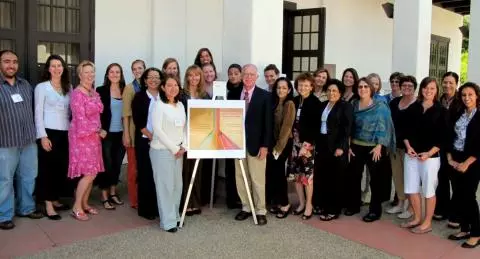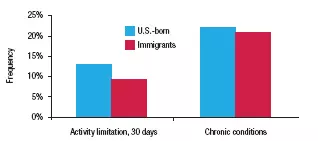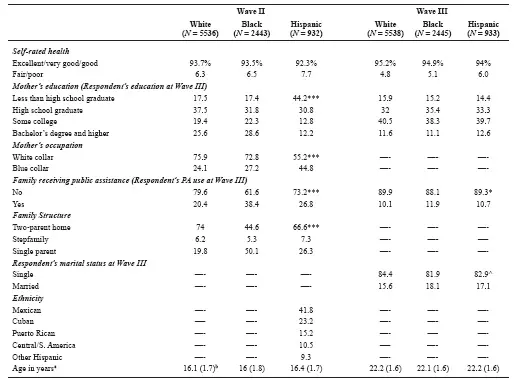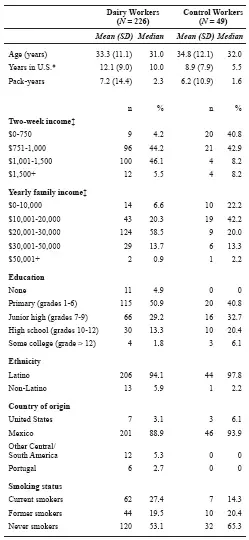
Introduction: New Research on Migration and Health
Abstract: This special issue on migration and health derives from an interdisciplinary research workshop held on May 13-14, 2010 under the auspices of the Center of Expertise on Migration and Health (COEMH), a component of the University of California’s Global Health Institute (UCGHI).1 The COEMH Research Training Workshop brought together 20 advanced graduate students and recent postdoctoral fellows from throughout the University of California system to present their recently completed or ongoing, fieldwork-based research and receive feedback from faculty experts in the field of migration and health.
Thematic: Societal issues and Governance
Read the article

Access Not Denied? The Role American Localities Can Play
Abstract: San Francisco represents a unique case in the United States in that it has enacted a set of inclusive policies at the local level to increase unauthorized immigrants’ access to and utilization of health care. Based on interviews conducted with 36 primary care providers working in the city’s public safety net in 2009, I examine how this inclusive local policy environment both reinforces and constrains their aspirational views of unauthorized immigrants as morally “deserving” patients, and how it operates to help provide care to unauthorized immigrants.
Keywords: Immigration, Incorporation, Unauthorized, Deservingness, Health Care,Safety Net
Thematic: Health and Environment
Read the article

An Examination of the Relationship between Family and U.S. Latinos’ Physical Health
Abstract: Latinos, especially immigrant Latinos, have lower mortality rates and some better health outcomes than U.S.-born Latinos and whites, a situation called the Latino Paradox. One explanation for the advantage is that Latinos’ family orientation protects health.
Keywords: Latino health paradox, family conflict, family cohesion, social integration,Mexican, Cuban, Puerto Rican
Thematic: Health and Environment

Health and Young Adulthood: Does Immigrant Generational Status Matter?
Abstract: A substantial body of research in international migration focuses on the “immigrant health paradox” and the health benefits immigrants may experience because of it. Less examined are the health outcomes of immigrants’ children and later generations.
Keywords: immigrant health paradox, Hispanic, generation, adolescence, downward assimilation
Thematic: Health and Environment

U.S. Migration and Reproductive Health among Mexican Women: Assessing the Evidence for Health Selectivity
Abstract: Health selectivity posits that individuals who practice preventive health behaviors are more likely to migrate to the United States, and this has been proposed as one explanation of the Latino Paradox. This paper examines evidence for health selection in the context of reproductive health using national survey data from Mexico (the longitudinal Mexico Family Life Survey [MxFLS], 2002 and 2005 waves) and the United States (the National Survey of Family Growth [NSFG], 2002).
Keywords: health selection, Latino Paradox, immigrant health, Mexican women,contraception, sexual risk behaviour
Thematic: Health and Environment

“People Here Are Alone, Using Drugs, Selling their Body”: Deportation and HIV Vulnerability among Clients of Female Sex Workers in Tijuana
Abstract: In many settings, migrants are at disproportionately high risk of HIV. The Tijuana-San Diego border is the world’s busiest international land crossing. Deportations in San Diego County have increased by 48% since 2002; many deportees are delivered to deportation stations in Tijuana, Mexico, where associations between HIV vulnerability and deportation have been documented.
Keywords: HIV, deportation, sex work, clients, vulnerability
Thematic: Health and Environment

Contraceptive Use, Unmet Need for Contraception, and Unintended Pregnancy in a Context of Mexico-U.S. Migration
Abstract: This study examines the impact of migration on contraceptive use, unmet need for contraception, and unintended pregnancy among migrants from Tlacuitapa, Jalisco, a migrant-sending community in Mexico with a long history of out-migration to the United States.
Keywords: Mexico, migration, contraception, unintended pregnancy, Jalisco
Thematic: Health and Environment

Respiratory Symptoms of California’s Dairy Workers Chelsea Eastman
Abstract: While research has documented the adverse impact of agricultural work on the respiratory health of farmers, few studies have reported on the respiratory health of dairy workers. Additionally, we are not aware of any published studies addressing the health impacts associated with large dairies in the western United States. The present investigation is a cross-sectional survey carried out at 13 dairies throughout the San Joaquin Valley.
Keywords: agriculture, dairying, California, respiratory health, asthma
Thematic: Health and Environment

Health Migration: Crossing Borders for Affordable Health Care
Abstract: Approximately 45.7 million people in the United States are uninsured and unknown numbers of this population are underinsured, severely limiting their access to medical care. To address this problem, people use innovative strategies to increase their access through cross-border care options.
Keywords: health insurance, U.S.-Mexico border, transnational medical consumerism, social networks
Thematic: Health and Environment

The Plight of Transnational Latina Mothers: Mothering from a Distance
Abstract: Economic globalization, trade agreements, and revolutionary changes in transportation and communication have fueled a steady increase in international migration. Foreign-born Latinas, driven by a strong desire to escape poverty and to improve life for their children, face difficult decisions as transnational mothers.
Keywords: Mexico, transnationalism, motherhood, family separation, U.S.-Mexico border
Thematic: Health and Environment

